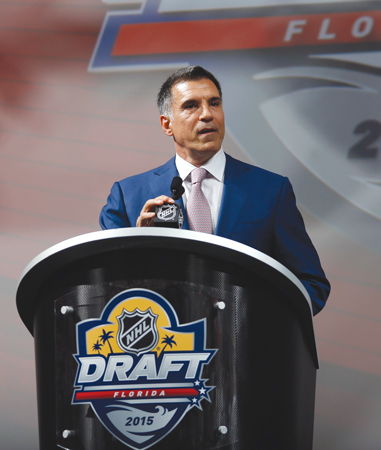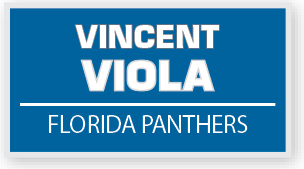After six years as a former minority owner of the then New Jersey Nets and now approaching his third year as Florida Panthers owner, Vincent Viola insists that he knows only as much about sports as any “super fan.” But ask him about the lessons of team ownership and he answers with the tempered experience of a man who’s stewarded a variety of businesses, and with the alacrity of one of the high-frequency trades upon which his $2 billion fortune was built.
“Culture is absolutely the first thing I’d tell anyone asking about buying a sports team,” said Viola, the son of a Brooklyn truck driver. “It’s a leadership exercise in culture. Do you think you can create a winning culture and do you think you’ll have fun and be economically responsible? Then it could work.
“Business is all about building and achieving operating excellence, understanding value at the most efficient point
of leverage and being creative, and being committed to finding and executing all the opportunities.
“Everyone in the organization has to feel that they have a defined and important job and that it’s a pleasant duty on their part to try and achieve excellence in a way that’s economically responsible. Why spend $5 for a screwdriver when you can spend $1? I tell my team’s leadership executives constantly that the better we do in terms of ticket pricing and general operational efficiency, the more we’ll have to spend in terms of the product on the ice.”
With the Panthers winning the Atlantic Division this year after having not qualified for the NHL playoffs the prior three seasons, Viola acknowledges that his team is ahead of schedule. However, he’s loath to take much personal recognition for the turnaround.
 |
| Photo by: Getty Images |
“What I can take credit for is putting the right people in place; guys like Matt [Caldwell] are the ones doing it on a daily basis,” Viola said, referring to the Panthers’ chief operating officer. “We believed that we could change the culture of the team and the guys are working hard every day to do that. We’ve taken some solid baby steps, but they are all in the right direction.”
As befits someone from the capital markets, Viola says the financial model across pro sports can be “challenging.” Consequently, his passion as an owner is more akin to a philanthropist than an industrialist.
“Every team owner has got a huge ego,” Viola said. “I have a low vanity threshold; for me, it’s a leadership challenge. … There are so many different challenges every day, it’s a little bit of a chicken and egg situation. The thing is that culture can take care of a lot of that. If you can build a corporate culture where people make decisions motivated by the right purpose and intentions and don’t put their egos first, you are at least three quarters of the way to your goal.”
With values established during his years at West Point and, later, as an infantry officer, Viola says character is vital, if not paramount, to team performance.
“It’s really important that the team puts forth the right values around teamwork, selflessness, dedication to a mission and a purpose larger than any one individual,” Viola said. “As an owner, you are the steward, you set those values and hopefully they are demonstrated by everyone in the organization. Owning a team is about stewardship of those values that make America, and in the case of hockey, Canada, what it is.”
Building culture starts with hiring the right people, in the front office or on the ice.
“The single most important attribute that we qualify every athlete by is character,” Viola said. “We’ve identified a set of traits and values we want a Panther to live up to through his conduct on and off the ice. To me, it’s much less important to be about winning than to be about how you win. That’s first and foremost.”
Viola recalled that one of his first luxury purchases was New York Rangers season tickets.
“It has to start, first and foremost, with a passion for the sport,” he said. “Growing up in Brooklyn, you had two choices — play sports all the time or get in trouble all the time. I ended up playing a lot of sports.”





